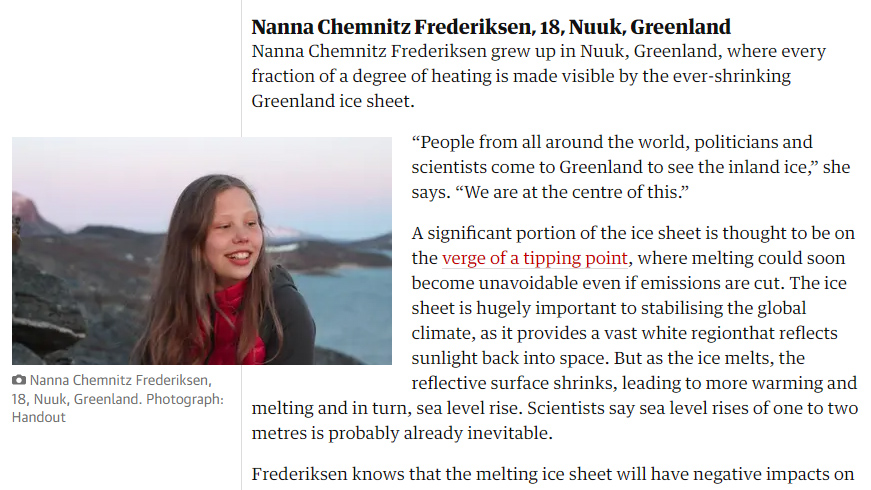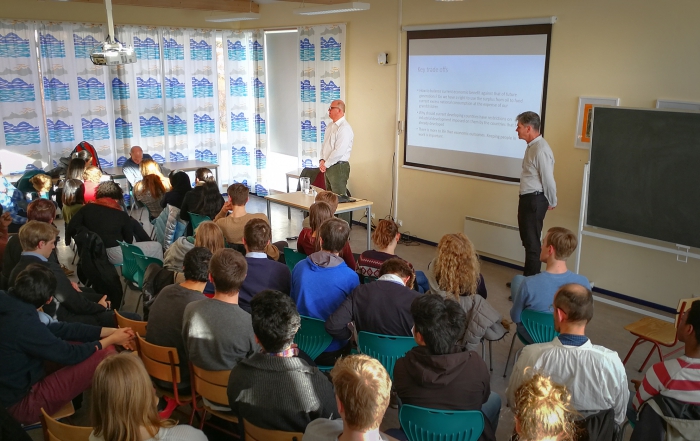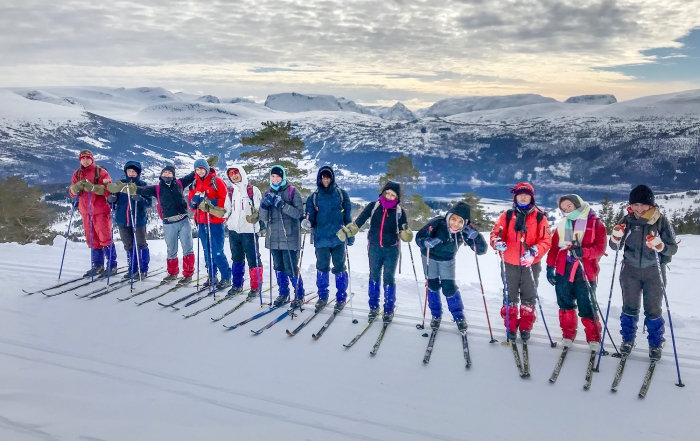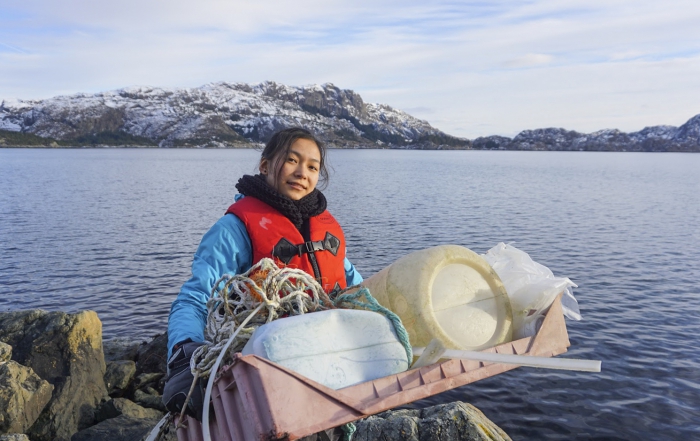“People from all around the world, politicians and scientists come to Greenland to see the inland ice,” she says. “We are at the centre of this.”
A significant portion of the ice sheet is thought to be on the verge of a tipping point, where melting could soon become unavoidable even if emissions are cut. The ice sheet is hugely important to stabilizing the global climate, as it provides a vast white region that reflects sunlight back into space. But as the ice melts, the reflective surface shrinks, leading to more warming and melting and in turn, sea level rise. Scientists say sea level rises of one to two metres is probably already inevitable.
Frederiksen knows that the melting ice sheet will have negative impacts on communities across Greenland, especially in northern settlements such as Qaanaaq where permafrost melting is destabilizing homes and roads and impacting how fishers and hunters operate.
But her real concern lies on the impact it will have globally. “I am not so scared of what the effects of the melting of ice in Greenland will be,” Frederiksen says, “It scares me what effect it can have for the rest of the world.”
Latest News
Visit and talk by Leif Høegh
Leif Høegh, Chairman of Høegh Capital Partners, kindly visited RCN on Thursday 15th March to deliver a presentation on the sustainability paradox in Norway: wealth brought by oil, mineral extraction, shipping and fish farming on [...]
Friluftsveka – Free air week
For five days this March all first years got to experience the cold, sunny, challenging, amusing and freeing feeling of being deep in Norwegian nature - all this while trying to balance on skis! The [...]
Thinking about plastic
RCN students Patricia (Åland), Tenzin (Tibet), Jack (UK), Sunniva (Norway), Mirandas (China), Celia (Sweden), Sara (Italy), Sadrac (Costa Rica), Abdullah (Palestine) were recently invited by 'In the Same Boat' - a group who are doing research [...]




